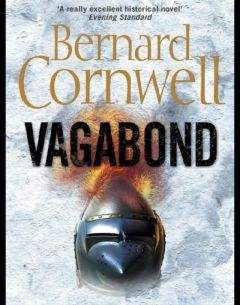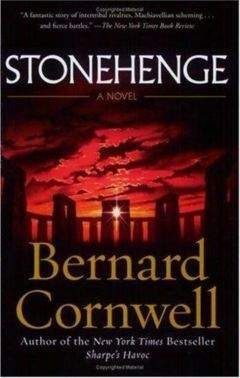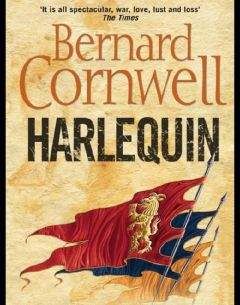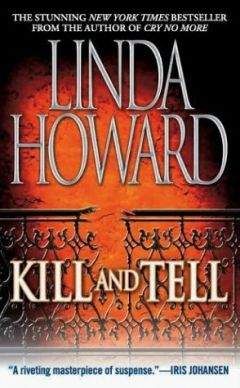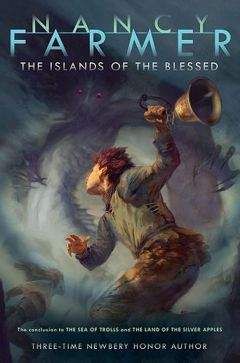Ознакомительная версия.
It was shot from a crossbow. The flames seared the night, arcing up and then plunging to fall in the Pentecost's wake. 'Send him an arrow back,' Sir Guillaume growled.
'Too far,' Thomas said. A good crossbow would always outrange a yew stave, though in the time it took to reload the crossbow the English archer would have run within range and loosed half a dozen arrows. But Thomas could not do that in this gathering darkness, nor did he dare waste arrows. He could only wait and watch as a second fire bolt slashed up against the clouds. It too fell behind.
'They don't fly as well,' Will Skeat said.
'What's that. Will?' Thomas had not heard clearly. 'They wrap the shaft in cloth and it slows them down. You ever shot a fire arrow, Tom?'
'Never.'
'Takes fifty paces off the range,' Skeat said, watching a third arrow plunge into the sea, 'and plays hell with accuracy.'
'That one was closer,' Sir Guillaume said.
Villerov had put a barrel on the deck and he was filling it with seawater. Yvette, meanwhile, had nimbly climbed the rigging to perch herself on the crosstrees where the one yard hung from the masthead and now she hauled up canvas pails of water which she used to soak the sail.
'Can we use fire arrows?' Sir Guillaume asked. 'That thing must have the range.' He nodded at Villeroy's monstrous crossbow. Thomas translated the question for Will Skeat whose French was still rudimentary.
'Fire arrows?' Skeat's face wrinkled as he thought. 'You have to have pitch, Tom,' he said dubiously, 'and you must soak it into the wool and then bind the woollen cloth onto the arrow real hard, but fray the edges a little to get the fire burning nicely. Fire has to be deep in the cloth, not just on the edge because that won't last, and when it's burning hard and deep you send the arrow off before it eats through the shaft.'
'No,' Thomas translated for Sir Guillaume, 'we can't.'
Sir Guillaume cursed, then turned away as the first fire arrow thumped into the Pentecost, but the bolt struck low on the stern, so low that the next heave of a wave extinguished the flames with an audible hiss. We must be able to do something!' Sir Guillaume raged.
'We can be patient,' Villeroy said. He was standing at the stern oar.
'I can use your bow?' Sir Guillaume asked the big sailor and, when Villeroy nodded, Sir Guillaume cocked the huge crossbow and sent a quarrel back towards the SaintEsprit. He grunted as he pulled on the lever to cock the weapon again, astonished at the strength needed. A crossbow drawn by a lever was usually much weaker than the bows armed with a wormscrew and ratchet, but Villeroy's bow was massive. Sir Guillaume's bolts must have struck the pursuing ship, but it was too dark to tell if any damage had been done. Thomas doubted it for the Saint-Esprit's bows were high and her gunwales stout. Sir Guillaume was merely driving metal into planks, but the Saint-Esprit's fiery missiles were beginning to threaten the Pentecost. Three or four enemy crossbows were firing now and Thomas and Robbie were busy dousing the burning bolts with water, then a flaming quarrel hit the sail and creeping fire began to glow on the canvas, but Yvette succeeded in extinguishing it just as Villeroy pushed the steering oar hard over. Thomas heard the oar's long shank creak under the strain and felt the ship lurch as she turned southwards. 'The Saint-Esprit was never quite as quick off the wind,' Villeroy said, 'and she wallows in a cross sea.'
'And we're quicker?' Thomas asked.
'We'll find out.' Villeroy said.
'Why didn't we try to find out earlier?' Sir Guillaume snarled the question.
'Because we didn't have sea room,' Villeroy answered placidly as a flaming bolt seared oser the stern deck like a meteor. 'But we're well clear of the cape now.' He meant they were safely to the west of the Norman peninsula and south of them now were the rock-studded sea reaches between Normandy and Brittany. The turn meant that the range suddenly shortened as the Saint-Esprit held on westwards and Thomas shot a clutch of arrows at the dim figures of armoured men in the pursuing ship's waist. Yvette had come down to the deck and was hauling on ropes and, when she was satisfied with the new set of the sail, she clambered back up to her eyrie just as two more fire bolts thumped into the canvas and Thomas saw the flames leap up the sail as Yvette dragged up buckets. Thomas sent another arrow high into the night so that it plunged down onto the enemy deck and Sir Guillaume was shooting the heavier crossbow bolts as fast as he could, but neither man was rewarded with a cry of pain. Then the range opened again and Thomas unstrung his bow. The Saint-Esprit was turning to follow the Pentecost south and, for a few heartbeats, she seemed to disappear in the dark, but then another fire arrow climbed from her deck and in its sudden light Thomas saw she had made the turn and was again in the Pentecost's wake. Villerov's sail was still burning, giving the Saint-Esprit a mark she could not fail to follow and the pursuing bowmen sent three arrows together, their flames flickering hungrily in the night, and Yvette heaved desperately on the buckets, but the sail was ablaze now and the ship was slowing as the canvas lost its force and then, blessedly, there was a seething hiss and a squall came lashing in from the east. The sleet pelted down with an extraordinary violence, rattling on the charred sail and drumming on the deck, and Thomas thought it would last forever, but it stopped as suddenly as it had begun and all on board the Pentecost stared astern, waiting for the next fire bolt to climb from the Saint-Esprit's deck, but when the flame finally seared into the sky it was a long way off, much too far away for its light to illuminate the Pentecost and Villeroy grunted. 'They reckoned we'd turn back west in that squall,' he said with amusement, 'but they were being too clever for their own good.' The Saint-Esprit had tried to head off the Pentecost, thinking Villerov would put his ship straight downwind again, but the pursuers had made the wrong guess and they were now a long way to the north and west of their quarry.
More fire arrows burned in the dark, but now they were being shot in all directions in hope that the small light of one would glint a dull reflection from the Pentecost's hull, but Villerov's ship was drawing ever farther away, pulled by the remnants of her scorched sail. If it had not been for the squall, Thomas thought. they would surely have been overhauled and captured, and he wondered whether the hand of God was somehow sheltering him because he possessed the book of the Grail. Then guilt assailed him; the guilt of doubting the Grail's existence: of wasting Lord Outhwaite's money instead of spending it on the pursuit of the Grail; then the greater guilt and pity of Eleanor and Father Hobbe's wasteful deaths, and so he dropped to his knees on the deck and stared up at the onearmed crucifix. Forgive me, Lord. he prayed, forgive me.
'Sails cost money,' Villeroy said.
'You shall have a new sail, Pierre,' Sir Guillaume promised.
'And let's pray that what's left of this one will get us somewhere.' Villeroy said sourly. Off to the north a last fire arrow etched red across the black, and then there was no more light, just the endless dark of a broken sea in which the Pentecost survived under her tattered sail. Dawn found them in a mist and with a fitful breeze that fluttered a sail so weakened that Villeroy and Yvette doubled it on itself so that the wind would have more than charred holes to blow upon, and when they reset it the Pentecost limped south and west and everyone on board thanked God for the mist because it hid them from the pirates that haunted the gulf between Normandy and Brittany. Villeroy was not sure where they were, though he was certain enough that the Norman coast was to the east and that all the land in that direction was in fealty to the Count of Coutances and so they held on south and west with Yvette perched in the bows to keep a lookout for the frequent reefs. 'They breed rocks, these waters,' Villeroy grumbled.
'Then go into deeper water,' Sir Guillaume suggested.
The big man spat overboard. 'Deeper water breeds English pirates out of the isles.'
They pushed on south, the wind dying and the sea calming. It was still cold, but there was no more sleet and, when a feeble sun began to burn off the shredding mists, Thomas sat beside Mordecai in the bow. 'I have a question for you,' he said.
'My father told me never to get on board a ship,' Mordecai responded. His long face was pale and his beard, which he usually brushed so carefully, was tangled. He was shivering despite a makeshift cloak of sheepskins. 'Did you know,' he went on, that Flemish sailors claim that you can calm a storm by throwing a Jew overboard?'
'Do they really?'
'So I'm told,' Mordecai said, 'and if I was on board a Flemish ship I might welcome drowning as an alternative to this existence. What is that?'
Thomas had unwrapped the book that his father had bequeathed him. 'My question,'
he said, ignoring Mordecai's question, 'is who is Hachaliah.'
'Hachaliah?' Mordecai repeated the name, then shook his head. 'Do you think the Flemings carry Jews aboard their ships as a precaution? It would seem a sensible, if cruel, thing to do. Why die when a Jew can die?'
Thomas opened the book to the first page of Hebrew script where Brother Germain had deciphered the name Hachaliah. 'There,' he said, giving the book to the doctor,
'Hachaliah.'
Mordecai peered at the page. 'Grandson of Hachaliah,' he translated aloud, 'and son of the Tirshatha. Of course! It's a confusion about Jonah and the great fish.'
'Hachaliah is?' Thomas asked, staring at the page of strange script.
'No, dear boy!' Mordecai said. 'The superstition about
Jews and storms is a confusion about Jonah, a mere ignorant confusion.' He looked back at the page. 'Are you the son of the Tirshatha?'
'I'm the bastard son of a priest,' Thomas said. 'And did your father write this?'
'Yes.'
'For you?'
Thomas nodded. 'I think so.'
'Then you are the son of the Tirshatha and the grand-son of Hachaliah,' Mordecai said, then smiled. 'Ah! Of course! Nehemiah. My memory is almost as bad as poor Skeat's, eh? Fancy forgetting that Hachaliah was the father of Nehemiah.'
Thomas was still none the wiser. 'Nehemiah?'
'And he was the Tirshatha, of course he was. Extra-ordinary, isn't it, how we Jews prosper in foreign states and then they tire of us and we get blamed for every little accident. Then time passes and we are restored to our offices. The Tirshatha, Thomas, was the Governor of Judaea under the Persians. Nehemiah was the Tirshatha, not the King, of course, just Governor for a time under the rule of Artaxerxes.' Mordecai's erudition was impressive, but hardly enlightening. Why would Father Ralph identify himself with Nehemiah who must have lived hundreds of years before Christ, before the Grail? The only answer that Thomas could conjure up was the usual one of his father's madness. Mordecai was turning the parchment pages and winced when one cracked. 'How people do yearn,' he said, 'for miracles.' He prodded a page with a finger stained by all the medicines he had pounded and stirred. ' “A golden cup in the Lord's hand that made all the earth drunk”, now what on earth does that mean?'
'He's talking about the Grail,' Thomas said.
'I had understood that, Thomas,' Mordecai chided him gently, 'but those words were not written about the Grail. It refers to Babylon. Part of the lamentations of Jeremiah.' He turned another page. 'People like mystery. They want nothing explained, because when things are explained then there is no hope left. I have seen folk dying and known there is nothing to be done, and I am asked to go because the priest will soon arrive with his dish covered by a cloth, and everyone prays for a miracle. It never happens. And the person dies and I get blamed, not God or the priest, but I!' He let the book fall on his lap where the pages stirred in the small wind. 'These are just stories of the Grail, and some odd scriptures that might refer to it. A book, really, of meditations.' He frowned. 'Did your father truly believe the Grail existed?'
Thomas was about to give a vigorous affirmative, but paused, remembering. For much of the time his father had been a wry, amused and clever man, but there had been other times when he had been a wild, shrieking creature, struggling with God and desperate to make sense of the sacred mysteries. 'I think,' Thomas said carefully, 'that he did believe in the Grail.'
'Of course he did,' Mordecai said suddenly, 'how stupid of me! Of course your father believed in the Grail because he believed that he possessed it!'
'He did?' Thomas asked. He was utterly confused now.
'Nehemiah was more than the Tirshatha of Judaea,' the doctor said, 'he was cupbearer to Artaxerxes. He says so at the beginning of his writings. “I was the King's cupbearer.” There.' He pointed to a line of Hebrew script. ' “I was the King's cupbearer.” Your father's words, Thomas, taken from Nehemiah's story.'
Thomas stared at the writing and knew that Mordecai was right. That was his father's testimony. He had been cupbearer to the greatest King of all, to God Himself, to Christ, and the phrase confirmed Thomas's dreams. Father Ralph had been the cupbearer. He had possessed the Grail. It did exist. Thomas shivered.
'I think' – Mordecai spoke gently – 'that your father believed he possessed the Grail, but it seems unlikely.'
'Unlikely!' Thomas protested.
'I am merely a Jew,' Mordecai said blandly, 'so what can I know of the saviour of mankind? And there are those who say_ I should not even speak of such things, but so far as I understand Jesus was not rich. Am I right?'
'He was poor,' Thomas said.
'So I am right, he was not a rich man, and at the end of his life he attends a seder.'
'A seder?'
'The Passover feast. Thomas. And at the seder he eats bread and drinks wine, and the Grail, tell me if I am wrong, was either the bread dish or the wine goblet, yes?'
'Yes.'
'Yes,' Mordecai echoed and glanced off to his left where a small fishing boat rode the broken swell. There had been no sign of the Saint-Esprit all morning, and none of the smaller boats they passed showed any interest in the Pentecesr. 'Yet if Jesus was poor,'
Mordecai said, 'what kind of seder dish would he use? One made of gold? One ringed with jewels? Or a piece of common pottery?'
'Whatever he used,' Thomas said, 'God could transform.'
'Ah yes, of course, I was forgetting,' Mordecai said. He sounded disappointed, but then he smiled and gave Thomas the book. 'When we reach wherever we are going,' he said, 'I can write down translations of the Hebrew for you and I hope it helps.'
'Thomas!' Sir Guillaume bellowed from the stern. We need fresh arms to bail water!'
The caulking had not been finished and the Pentecost was taking water at an alarming rate and so Thomas vent down into the bilge and handed up the pails to Robbie who jettisoned the water over the side. Sir Guillaume had been pressing Villerov to go north and east again in an attempt to run past Caen and make Dunkirk, but Villerov was unhappy with his small sail and even more unhappy with the leaking hull. 'I have to put in somewhere soon,' he growled, 'and you have to buy me a sail.'
Ознакомительная версия.
